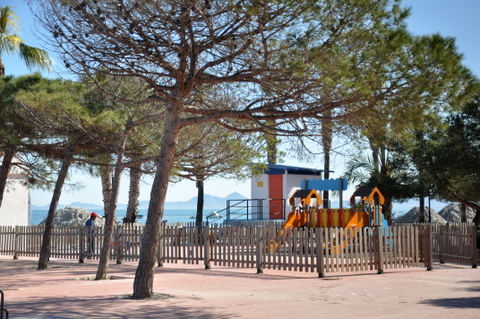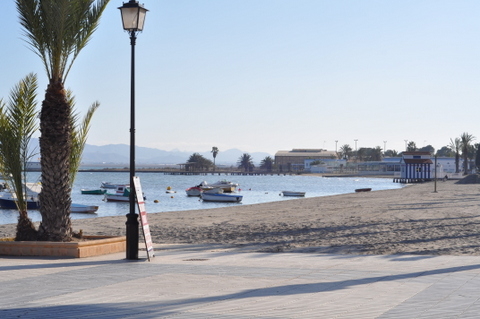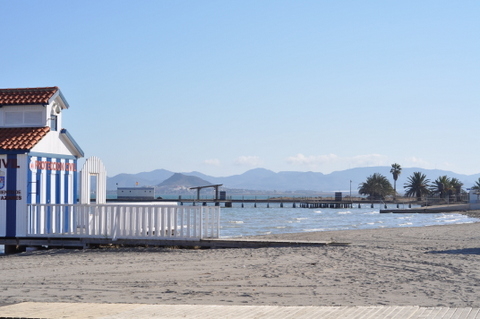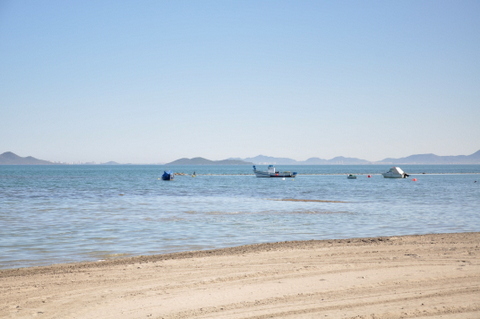

Guidelines for submitting articles to San Javier Today
Hello, and thank you for choosing sanjavier.today to publicise your organisation’s info or event.
San Javier Today is a website set up by Murcia Today specifically for residents of the urbanisation in Southwest Murcia, providing news and information on what’s happening in the local area, which is the largest English-speaking expat area in the Region of Murcia.
When submitting text to be included on San Javier Today, please abide by the following guidelines so we can upload your article as swiftly as possible:
Send an email to editor@spaintodayonline.com or contact@murciatoday.com
Attach the information in a Word Document or Google Doc
Include all relevant points, including:
Who is the organisation running the event?
Where is it happening?
When?
How much does it cost?
Is it necessary to book beforehand, or can people just show up on the day?
…but try not to exceed 300 words
Also attach a photo to illustrate your article, no more than 100kb

Overview of the beaches of Los Alcázares
Los Alcázares boasts 7 kilometres of fine sandy beaches
The municipality of Los Alcázares, located in the south-east of the Murcia Region on the landward shore of the Mar Menor, boasts seven kilometres of fine sandy beaches, linked together via a paved promenade which runs from the Playa de La Concha close to the historic hydroplane air base in the south to the Playa Las Salinas in the adjoining district of Los Narejos in the north, neighbouring Santiago de la Ribera and the former international airport of San Javier.
The promenade is very popular with walkers, joggers and cyclists alike and all along it are plenty of shops, bars and restaurants, as well as shade, seating and children's play areas.
All of the beaches are groomed sand, varying in width but with several things in common: the seafront walk and shaded seating behind them, a full range of services, gently sloping shallow shorelines and safe bathing areas and relatively easy access and facilities for disabled bathers. In the summer all are of medium-high occupancy, and are clean and well-maintained.
The population of around 19,000 in Los Alcázares increases to as many as 100,000 during the peak summer months so the beaches are very busy and are fully served with lifeguard cover, medical cover, beach bars, footwashes, wooden walkways, disabled bathing chairs, bins and toilets.
Parking can be extremely difficult in summer, however spaces can sometimes be found in the streets behind the beach and there is underground parking close to the Town Hall. Those driving to Los Alcázares in summer are advised to park either north or south of the town centre, ie cloes to Playa Salinas or Playa de la Concha.

The Mar Menor and watersports
All of the beaches in Los Alcázares are on the Mar Menor, Europe's largest saltwater lagoon, which is fed by the Mediterranean.
The Mar Menor is totally unique, its geographical peculiarities creating some of the best conditions in Spain for those learning watersports, particularly windsurfing and sailing. In addition, Murcia is the warmest mainland region in Spain and the climate is close to perfect for year-round watersports activity. The water on the Mar Menor is not tidal and has no currents or waves, adding to the attractions for beginners.
The shallow fringes slope very gently and the maximumn depth is only 7 metres in the centre, so the water temperature is warmer than that of the Mediterranean, particularly around the edges - here it is possible to wade out 50 metres from the shore and still only be waist deep, creating perfect conditions for nerby bathers and also ideal training shallows for all types of watersport.

Added to are an afternoon thermal wind, offering more difficult conditions for experienced sailors, and prevailing winds which create excellent runs for windsurfers. In the long shallows the winds generally blow in the right direction for kitesurfers, and all of this makes the area one of the most important centres for watersports training in Spain.
The 170 square kilometres of the Mar Menor and its 70 km of coastline are separated from the Mediterranean by the 22-kilometre long strip of La Manga, and the lagoon is connected to the Med by a canal and various channels called "golas", enabling boats to sail between the two seas. Los Alcázares is home to the CAR Infanta Cristina, which is used by international sportspeople (including the British Olympic team) for winter training, and other popular activities in the area include canoeing and kitesurfing.

The beaches of Los Alcazares are as follows, from north to south:
Playa de La Concha, home to the Club Náutico at the southern end of the seafront walk in Los Alcázares.
Playa Carrión, a high-occupancy urban beach with a wide range of services.
Playa Manzanares, a well-equipped beach on the shore of the Mar Menor.
Playa del Espejo, 1,200 metres of sand with plenty of water sports opportunities.
Playa Las Palmeras, a wide swathe of sand on the seafront of Los Alcázares.
Playa Los Narejos, popular with water sports enthusiasts.
Playa Las Salinas, a semi-urban beach close to the perimeter fence of the old San Javier airport.
For more general information about Los Alcázares, go to the home page of Los Alcázares Today.






